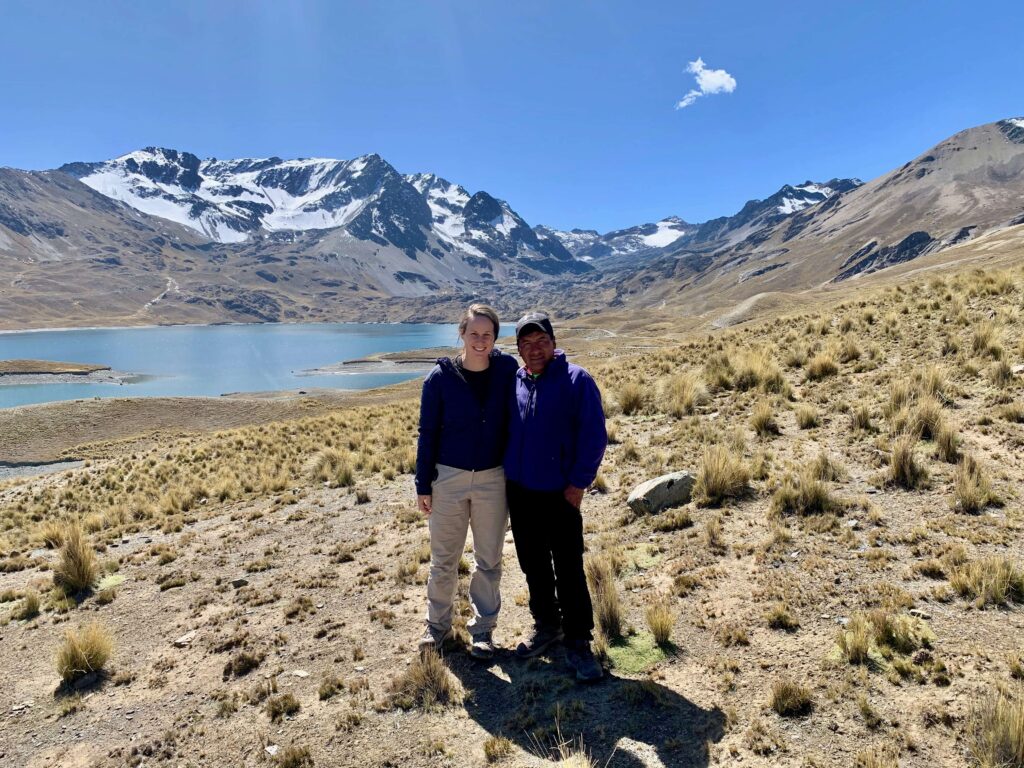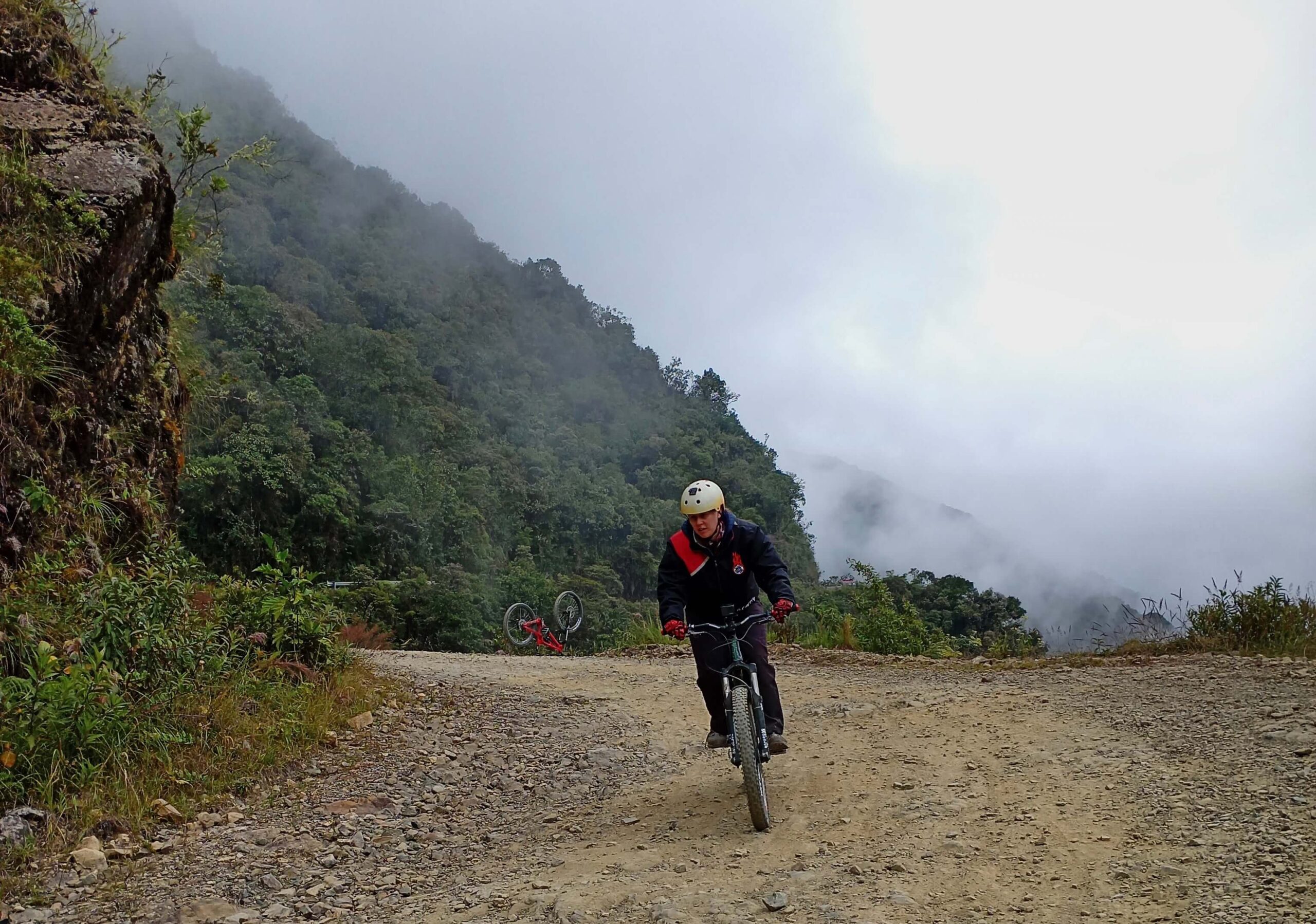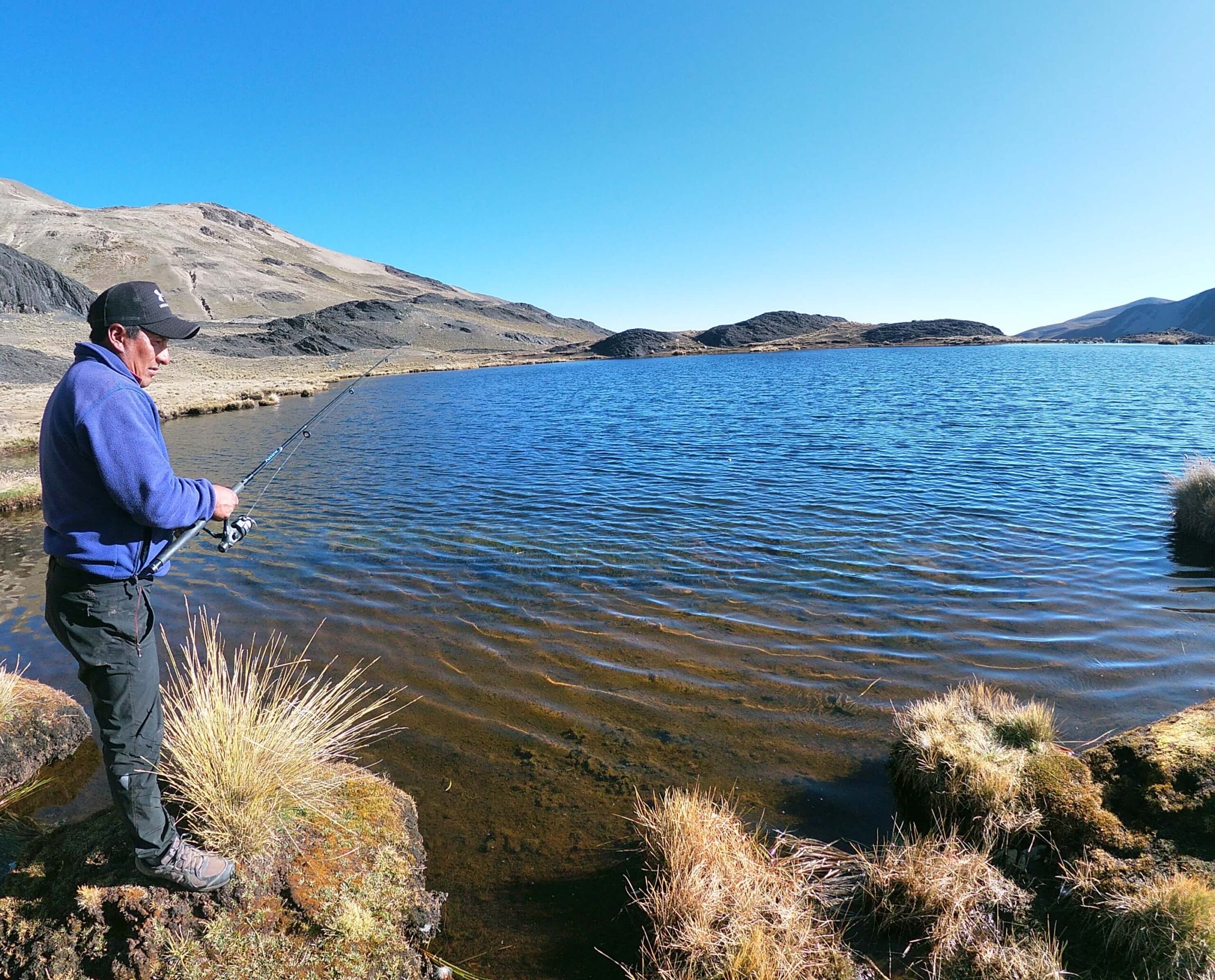
Indigenous Hike and Homestay in Bolivia’s Cordillera Real
The ground sinks beneath our feet, giving slighting before springing back like a sponge of the Andes. The earth grows more damp and bog- like as we approach Chiar Cota, a small lake in Bolivia’s Cordillera Real, a range of snow-peaked mountains that separates the high altitude plains from the verdant Amazon basin far below.
Jaime Quispe stands at the water’s edge and baits a hook next to Vladi, his 3-year-old grandson who made the 20-minute ascent to the lake on foot largely without complaint and leading the pack most of the way. A pack of Alpacas graze nearby as he casts his rod into the crisp water. Within seconds he has a bite and is reeling a flopping fish back to shore.
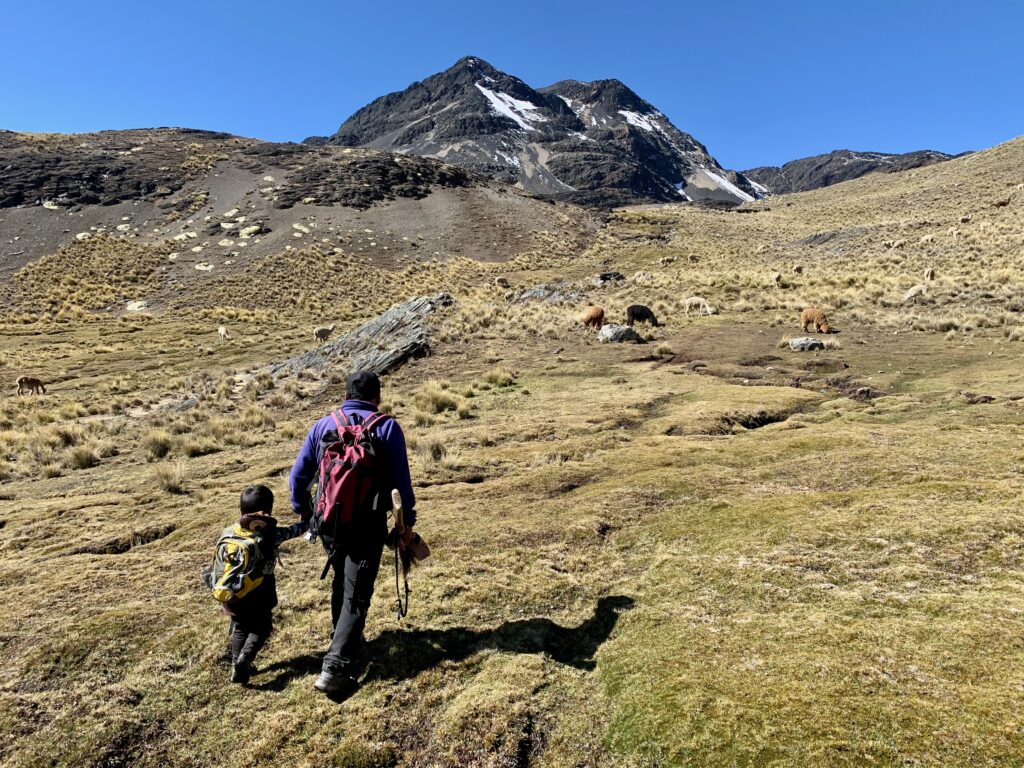
Jaime is a native of Tuni, a small Aymaran indigenous community located about two hours outside of La Paz. In Bolivia it’s nearly impossible to get everything needed to sustain life in one place, so movement has been the norm. For centuries, Jaime’s ancestors were a migrating people, moving from the high mountains of Tuni where alpaca and llama roam to lower communities where quinoa and potatoes grow.
Jaime’s generation is the first to use the land in a new way: ecotourism.
“For me, ecotourism means to share the two cultures – European and South American,” Jaime said as we rolled down a dirt road on his land one recent late spring afternoon. “Our agriculture is really important – the quinoa and potatoes. So is our farming and work with the llama and alpaca. We want to share our music, food and a moment between the two cultures.”
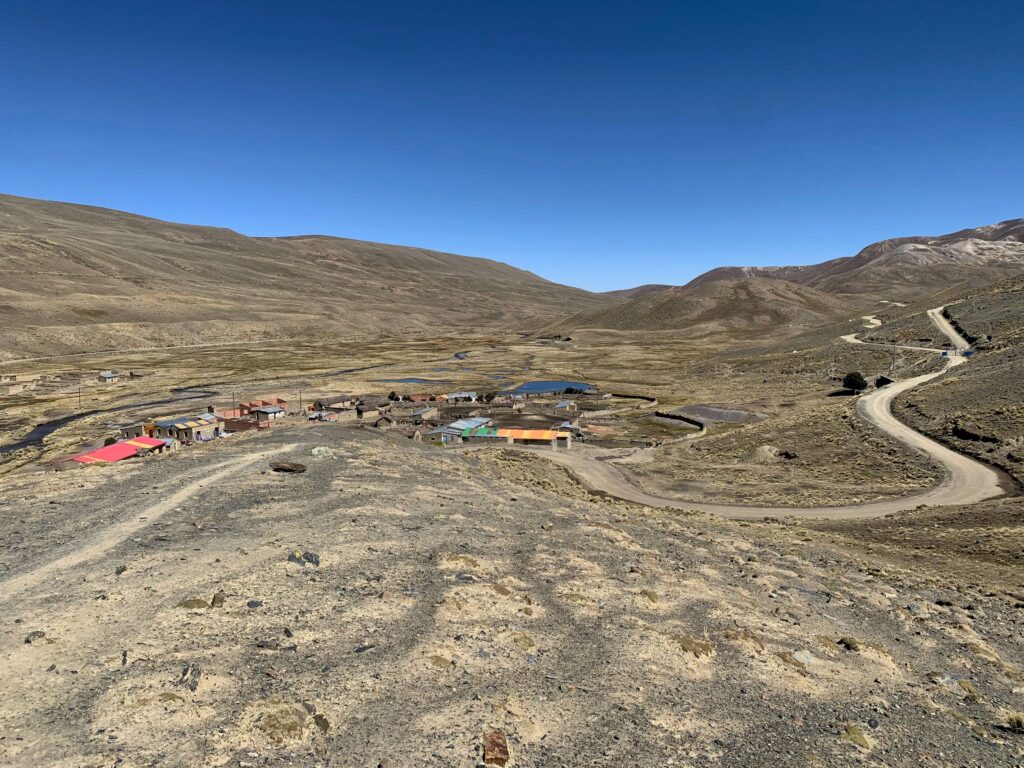
The only community in the Cordillera Real, Tuni is a gateway to soaring mountains where adventurers can summit glacier peaks of nearly 20,000 feet in a single day thanks to its initially high altitude. The abundance of high altitude summits make this part of Bolivia extremely popular for both novice and accomplished mountaineers. Sitting at an elevation of just over 14,000 feet, Tuni provides a distinct advantage over other trekking destinations like the Himalayas where adventurers must hike for several days if not weeks to reach a single summit.
After beginning his foray in tourism more than 20 years ago as a mulero (one who works with mules), Jaime worked as a porter for hikers while he trained to become an expert mountaineer and guide. To cater to the many adventurers who come to climb in the region, Jaime and his brothers first opened a small eco-lodge on the land in 2008. Ten years later, Jaime and his wife Marisol expanded the offerings to include the quaint guesthouse of Alberge Tuni Apacheta.
Operating the guesthouse is a family affair. Jaime and Marisol are ever present, as are their two daughters and son who serve as guides, cooks and hosts on the property.
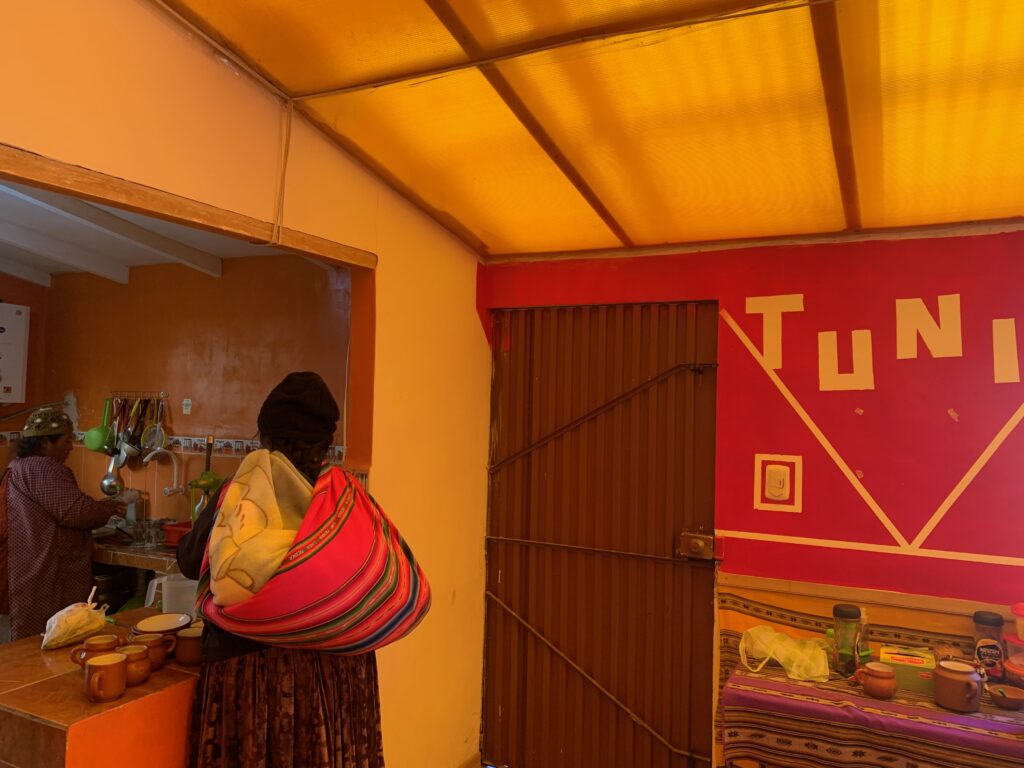
In addition to trekking in the mountains, visitors to Tuni are offered a deeply immersive experience into the Aymara way of life. A stay includes all meals as well as activities like fishing, shearing llama and drying crops.
“I offer my services and help the tourists do the activities that we do here so we can preserve our culture and share it with others,” Jaime said.
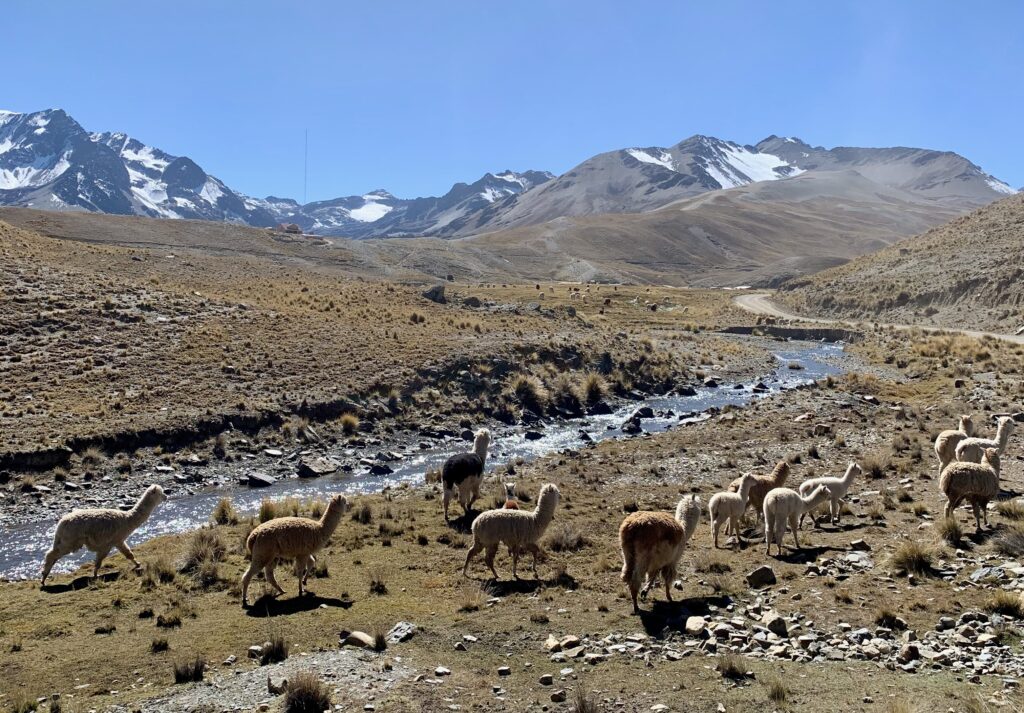
Since the pandemic ended tourism has been slow to return to Bolivia. But in recent years his guest house has become a thriving hotspot, in particular for young French travelers. From French and English to Spanish and Aymara, Alberge Tuni Apacheta is swirling with languages and laughter.
On a crisp and chilly night the stars outside the small guesthouse shine with brilliance. Inside the cozy abode a group of travelers sit at a table, gathered around Jaime and savoring cups of tea.
Yesterday was Jaime’s daughter’s 16th birthday. He brings out a cake and soon the group sings Happy Birthday, the mix of languages somehow swirling together. Before the cake is cut Vladi is nearby and swoops in with his hands to take out a chunk of frosting. Everyone laughs.
This moment strikes the root of why Jaime has spent two decades building an enduring tourism infrastructure.
“We do all this so we don’t abandon Tuni,” Jaime added. “My children live here. Now many people are leaving our region for work in Chile, Argentina, Brazil and other places. But I don’t want this to happen in Tuni. This is why we created our tourism offerings. My children can work here and don’t have to leave.”
